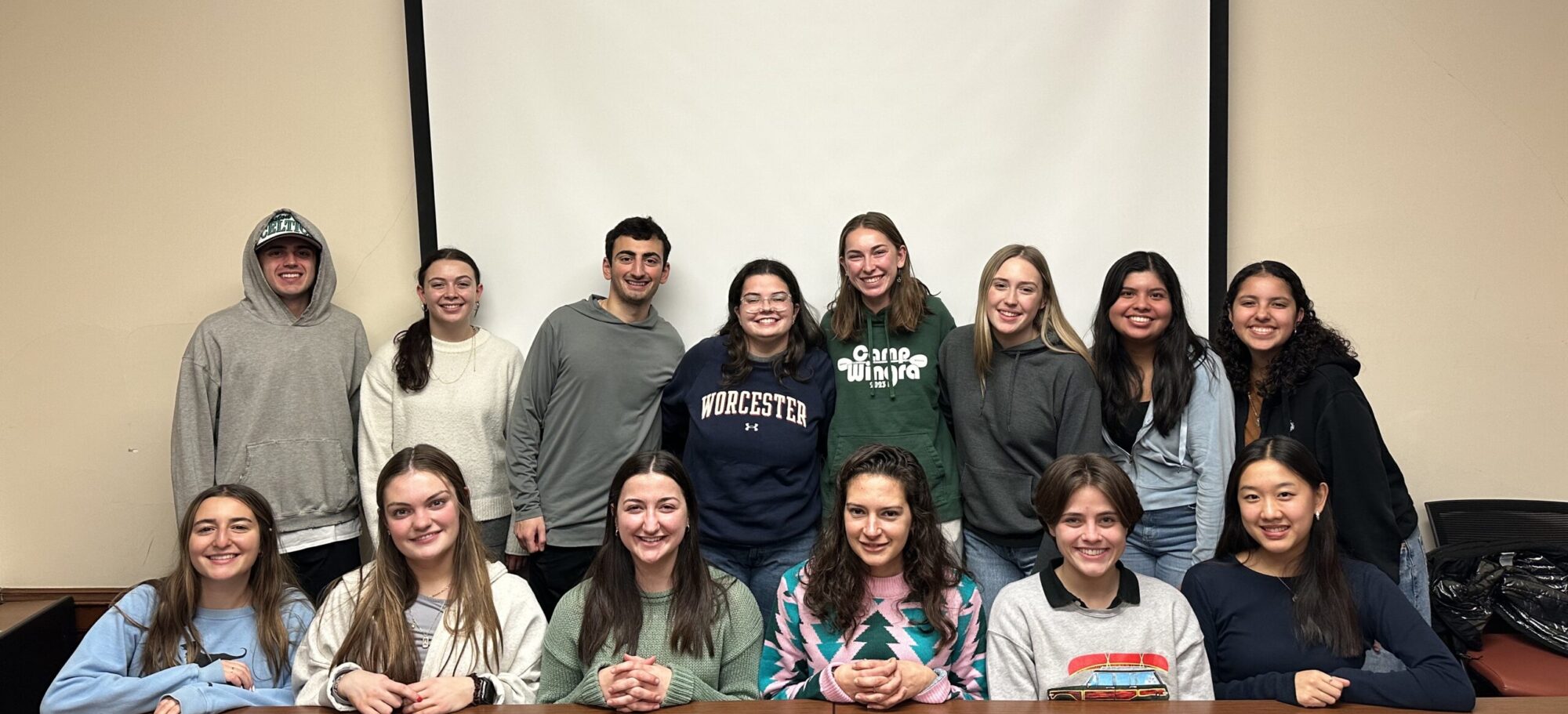“In this universe we are given two gifts: the ability to love, and the ability to ask questions. Which are, at the same time, the fires that warm us and the fires that scorch us.”
— Mary Oliver
As a first year, I had little idea of what my four years at Holy Cross would look like and I honestly struggled to see a future for myself on Mount St. James. I found it difficult to foster a sense of “home” in this uncharted territory that is college. Amidst the confusion I felt, I found comfort in my time with Community-Based Learning and my weekly visits to Ascentria Care Alliance. Every week gave me something to look forward to; I felt a sense of anticipation as each week brought new challenges and learning opportunities. Further, the weeks allowed me to grow in my connection to the young woman I was engaging with; as an unaccompanied refugee minor from Guatemala she was struggling to learn the English language and our time usually consisted of conversational and vocabulary English language exercises. I felt as though I connected to her in some ways, although to an entirely different extent, we shared a common humanity of navigating a new sense of belonging in foreign territory. I knew this experience was more than solely a learning experience for my class. I found myself in a situation where I felt genuine human connection alongside a fervent desire to learn more about the English Language Learner experience in the United States as I questioned why our education system allowed for bright, intelligent students to fall behind because of their linguistic status. My time engaging with Ascentria was a small and individual experience of community and lit a desire to further grow my community at Holy Cross.
These unparalleled feelings and the encouragement from my Montserrat Professor, Ginny Ryan, led me to apply to be a CBL Intern. I knew I wanted to be a part of a cohort that engaged in questions regarding social justice. However it was not until I was immersed in this group that I truly grasped the meaning and value of community, especially one that embodies the Jesuit mantra of being individuals “for and with others.” The Donelan Office provides a safe space for these questions to be asked, discussion to occur, and friendships to flourish. There is something undeniably powerful that occurs when a small group of students, fostering countless perspectives, all passionate about social justice and dedicated to change, come together as one unit in a space dedicated to preserving and growing these ideals. Each year as an intern I found myself creating more friendships in the CBL office and in the Worcester community with the Worcester Public Schools Transition Program than I could have imagined. My young first-year-self did not grasp the impact that having a community would have on my college experience until I found myself in the depths of it. When friendships are forged with a shared belief in something greater than oneself, in this case the passion for social justice, there is no limit to the growth that the relationship will experience.
My original perception that the CBL office was a necessary component of the harmony of the CBL community was proved wrong during the COVID-19 pandemic. The values of our community were too strong for the pandemic to corrode, we continued to meet over ZOOM and strengthened our individual connections with one another turning to creative virtual measures to connect and to continue our discourse. There is truly no obstacle that can impede a dedicated group of people with a shared bond and united purpose.
Ultimately, being invited to join the CBL community and then opening myself to the experience gave me sense of personal purpose as I discovered a passion that has influenced my educational, career, and life aspirations. It is rare to find a place that as Mary Oliver describes it nurtures “the ability to love” and “the ability to ask questions” simultaneously. Yet, this feels almost effortless in the CBL community, surrounded by people who through their love for one another create a space where there is always more to ask. I am forever grateful to Isabelle, Michelle, and the past & present CBL Interns for providing me with the most beautiful sense of community I could have imagined these past four years.
Community is shared purpose. Community is love. Community is asking more of yourself, each other and the world.


